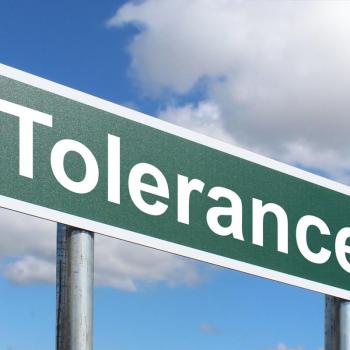
Americans are having fewer children than ever before.
Why?
Well according to to the Deseret News’ recent American Family Survey, the most common factor in deciding to have children was finances. 97% said financial considerations were important. This was higher than be married, be in a relationship, have health insurance.
All of which is to say, apparently I’m weird. Really weird.
I graduated with a degree in English (would you like fries with that) in the late spring. And while many of my peers used the writing and analysis skills they honed to take jobs across the marketplace, I looked for a career in writing.
The next fall, my wife started graduate school, while my career still consisted of taking whatever tutoring-side-gigs I could find.
Our life savings were dwindling, neither of us was bringing in any income to speak of, and we decided it was the perfect time to have our first child.
What?
Or to put this into a more contemporary vernacular:
What!?!?!????!!
But honestly, it wasn’t until I was reading the new study that I ever framed our decision in terms of money. And seriously, what were we thinking?
If anyone should know, it’s probably me. And having been there only five years ago, I should remember.
1. We Had Been Married Two Years
If I learned anything from elementary school, it was that after Christopher and Susan were kissing in the tree, first came love, then came marriage, then came a baby in a baby carriage.
As evidenced by our two-year wait, we were in no rush to have children. But our second anniversary gave us occasion to consider the purpose and direction of our relationship. We were one another’s partners, but in what?
Certainly, there were lots of ways we could answer that question. But the way every one of our ancestors answered that question was the same: children.
In two years, we had built a durable and strong relationship. We had overcome difficulties, learned to communicate in things big and small, learned to sacrifice and compromise, and learned one another’s strengths, weaknesses, and insufferable quirks. We had something that could withstand the long nights and difficult disagreements.
We had built a love that could nurture and protect a child.
The number one consideration for us was whether or not our relationship was mature enough to handle a child and give the child what he or she needed. And it was.
2. I was Racing Down 30
You don’t have to travel far through the internet before tripping over an article debunking the myth that you have to have had your children by this or that arbitrary age. This is quintuply true for me, a man, who can in theory sire children indefinitely (this is not a statement on speculative doctrine).
So even if we accept that all that is true (it’s a mish-mash) who cares how old you are? Well, I do.
Child rearing is exhausting work. And I can barely keep up with my one year old now. How old do you really want to be changing 3 am diapers? How old do you really want to be driving kids to 6 am seminary?
I wanted children, but I also wanted to then not have children. At least not in my home.
And because I was so bad at dating, by the time I did it right, there was only so much time left to have children if I wanted to do it before I started saying things like “that’s my bad knee.” (Which FYI, didn’t quite make it on that particular one.)
When we decided to have children, I just had my 29th birthday. If I wanted to start a family before thirty, there wasn’t much time.
So honestly, our second consideration was our age and what kind of parents we wanted to be.
3. We Wanted Our Options to Stay Open
The other major consideration for us was how big of a family we wanted. And for us the answer was a big whopping, I don’t know.
But we were both wise enough to recognize that if we were indecisive about having a family, that would make our decision for us. So if we wanted to have the choice to have four or five children, we knew we needed to leave enough time so that we had those options available to us.
There is something intimidating about scheduling out, okay if we want the option of having so many kids, and we want to space them out this much, then we need to start having children _____ .
And what we realized is that some options were already closed to us, we couldn’t have as big a family as we possibly wanted, spreading out the children as much as we wanted, and ending by the age we wanted. It was already impossible.
We were pretty open about the compromise in number, frequency, or age that we realized we’d have to make. But we also immediately recognized that every day longer we waited more of those compromises were being forced on us. And we didn’t want that.
4. We Wanted to Do Our Part
The world needs children. Raising children is hard. I wanted to do my part.
A number of people, especially recently, opt out of having children voluntarily. They don’t want to deal with it.
Frankly, five years later, I get it. Having kids is aggravating and exhausting, a roller-coaster of “it used to be a lot easier.”
But blame the Boy Scouts, I guess, but I grew up with a sense of duty. And while life certainly would be easier without children, that hardly seems like a compelling case for how to make decisions with deep societal consequences.
5. We Wanted Kids

But please don’t get all the duty and exhaustion talk confused with not wanting kids. Clearly, I felt I should have kids regardless of whether I wanted them.
But I did want them.
Do you know how satisfying it is to know that you are molding the minds that will make the future? You do if you have children.
It is a huge responsibility to have to create a den of love and teaching and safety for new people. But when you manage it (or something resembling it) it is supremely satisfying.
Plus, and this can’t be overstated, while kids are annoying, their annoying-ness is inversely proportional to how cute they are (at least until they are teenagers.)
The laughs and joy my children have brought into my home now define my sense of happiness and well being.
One of the questions on the Deseret News survey was what was essential to living a fulfilling life. 77% said making a good living. 71% said education. But only 31% and 36% said being married and having children respectively.
I don’t believe any one thing is necessary for a fulfilling life. People can overcome circumstances to find fulfillment wherever they are.
That being said, boy did the respondents to this survey get it backward.
If you think that promotion made for a good life, try having your non-“L”-pronouncing two-year-old loudly identify all the clocks at church. If you think you felt fulfillment when that peer-reviewed publication went through, try wiping off a tear after the fourth vomit of the night. If that ever higher number on your paycheck gives you the fuzzies, imagine a four year old looking up from the TV without prompting:
“Hey Dad”
“Yeah Buddy”
“I love you.”
6. We had Support
I don’t mean to diminish the fact that ultimately kids do cost money. And if you don’t have any of that you should probably find a way to get some. We were in the situation where my wife and I were talented educated people. We knew that in the long run we were lucky enough to not have money define our lives.
But we were lucky in another way. As members of the Church, we knew support was always there.
I remember weeks after my wife getting pregnant, I spoke to the bishop and mentioned that we were expecting, I was scared, and that we might need help. I could move forward with confidence knowing that support was there. Not everyone has that support, but even if you aren’t a member of the Church of Jesus Christ you might find that same support among family, friends, or groups you are a part of.
When you frame the question in terms of money, having a kid when we did doesn’t make any sense. But there were so many other more valuable interesting ways to frame the question. Only weeks after we conceived I got the internship that turned into the job I have to do this day. My wife’s graduate school has turned into two professional licenses. And that baby has turned into our little boy who has enriched my life more than I can measure.
I have no regrets.
And while I certainly won’t say you need to follow my path, I will say it worked for me, so maybe consider it. Unlike money, children are of infinite worth.
Edit:
Based on the comments and response on social media, I see a few ways of thinking that many people have that might be stopping them from having as many children as they could.
1. “Our financial situation is static. And if it changes, it will be because of unexpected bad news.”
But it’s just not true in most situations. People have called me irresponsible in response to this article, a lot. But people’s earning power statistically increases over time. If you’re waiting to be able to afford to put your child through college before you have a newborn, you are having fewer children than you can afford. It’s not irresponsible to count on improving financial fortunes, it’s the most likely scenario.
2. “We want to provide for our child at the lifestyle we are accustomed to.”
The trouble with this is that children cost money, so when you have one you will have to adjust your lifestyle no matter what. Children don’t need the wealthiest life possible, they need loving parents. And waiting until you can afford to buy your children all the things you couldn’t get as a child can rob both of you of years of meaningful relationships. Happy well-adjusted children are born into low-income situations every day. And those families are happier long-term because they have those children in them.
3. “I’m more responsible for not contributing to overpopulation.”
The question of overpopulation is heavily debated among scientists. But the question of whether or not lower fertility rates is going to hurt developed countries is not debated. It will hurt. Many European countries are already providing incentives to have children to stave off their fertility crises. The US has had a higher fertility rate, but it is now dropping to similar levels. Our country needs more children. You will be helping not hurting by having them.












